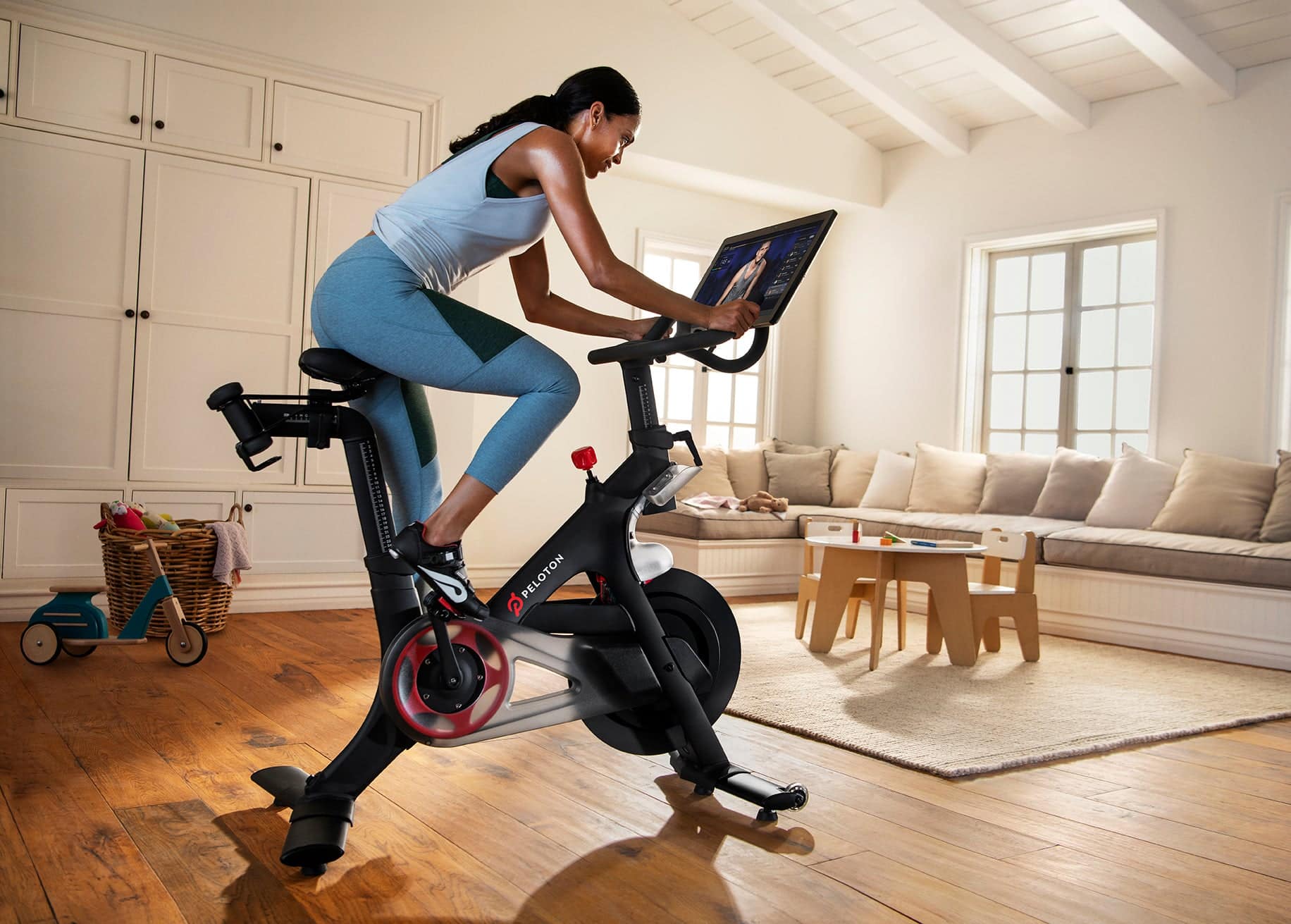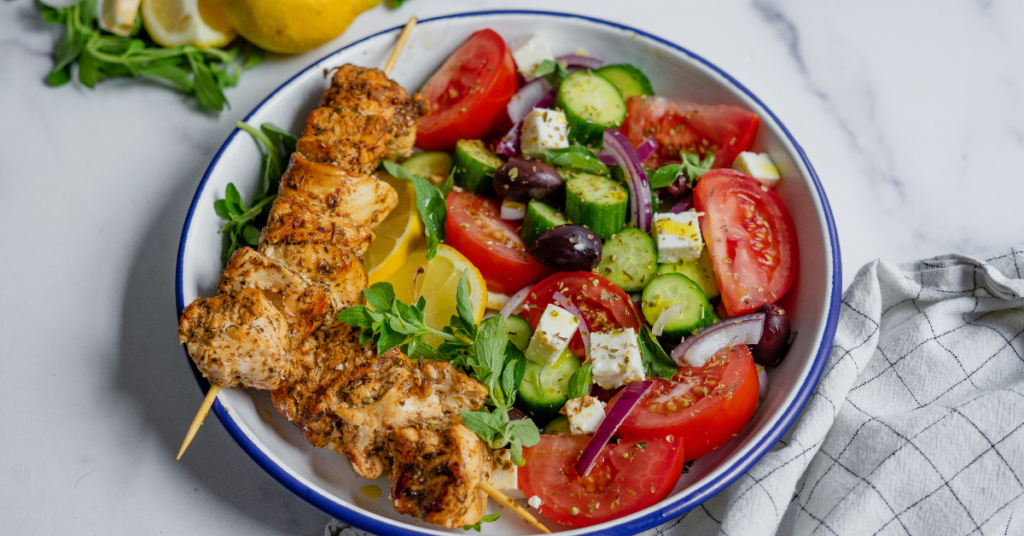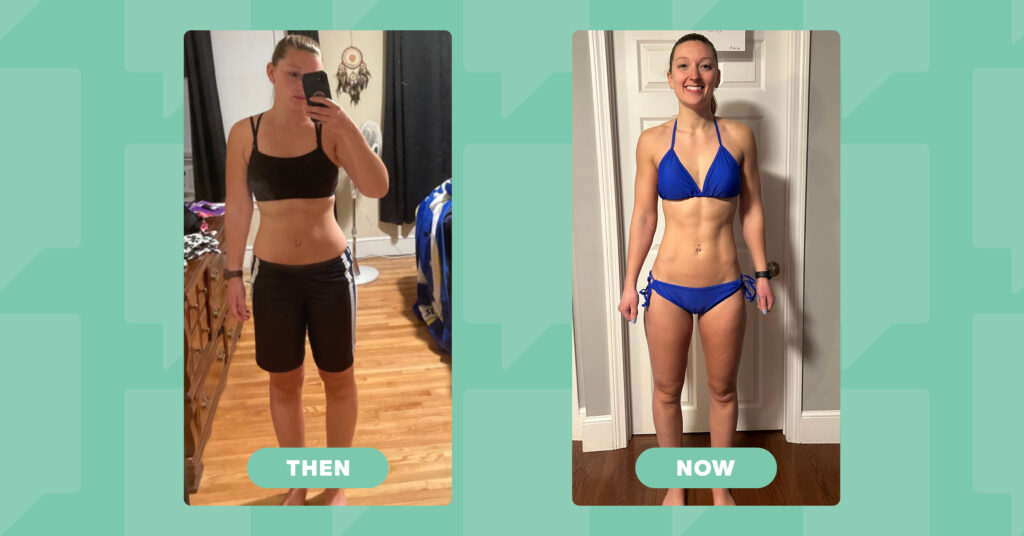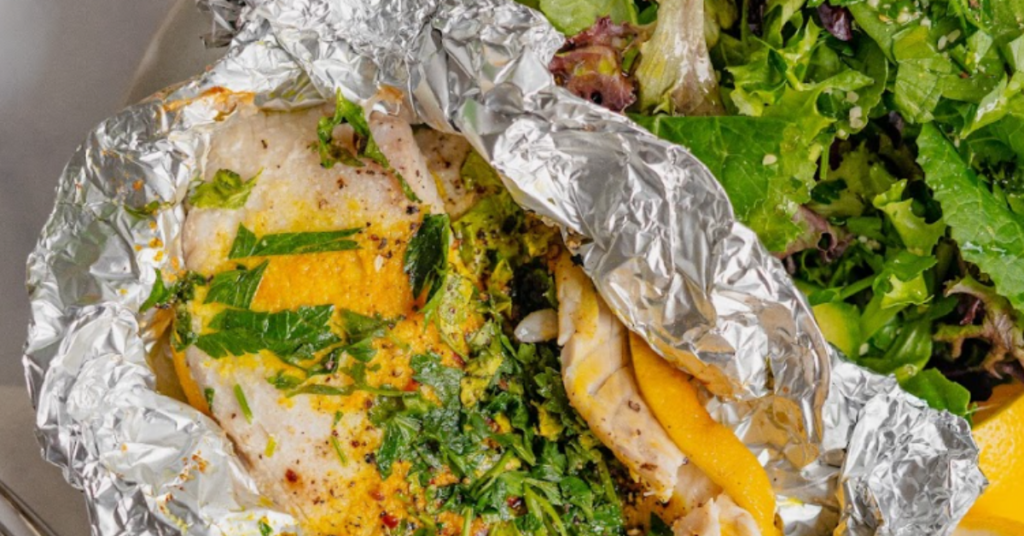Peloton for Weight Loss
My first introduction to Peloton was when a few people started joining our program and mentioning that’s how they heard about us. I didn’t have a clue what it was. I would see “Peloton group” come through on the ‘how you heard of us’ section on our signup form, and I assumed it was an at-home add on to regular cycling.
Then I did a little searching. Wow. This thing is major and there is a huge community of people buying these bikes to lose fat in addition to getting more fit and healthy. If you aren’t familiar with Peloton, picture an in-home spin class with a well-built bike, awesome instructors, a tight community, and some of the best technology in the fitness business. You can see why this company is valued at over a billion dollars. It checks all the boxes…except one and it’s to no fault of their own. Giving people the results they want.
So, why are Peloton results not meeting expectations? Well, it’s the same old problem every exerciser faces: diet.
Is Peloton Good for Weight Loss?
If you’re working out hard and you’re not seeing fat loss results or losing weight, it probably has less to do with your workout and more to do with your nutrition. So, when you’re asking yourself “Does Peloton help you lose weight?”, the answer is: It can with a good nutrition plan. Diet is a key factor that impacts weight loss, exercise performance, and accounts for time spent outside of exercise classes. In this article, we’re addressing how to lose weight with Peloton by tackling some diet pitfalls. More importantly, we’re leaving you with practical tips so you can get the most out of your workouts and better Peloton results.
How to Lose Weight with Peloton: Address These Diet Pitfalls
- Eating more calories than you’re burning
- Overeating “healthy” foods
- Using food as a reward
- Eating “back” the calories you burned
- Exercising more but moving less throughout the day
- Not consuming enough protein
- Ignoring other lifestyle areas
Let’s dive into each of these further.
You’re not burning as many calories as you think.
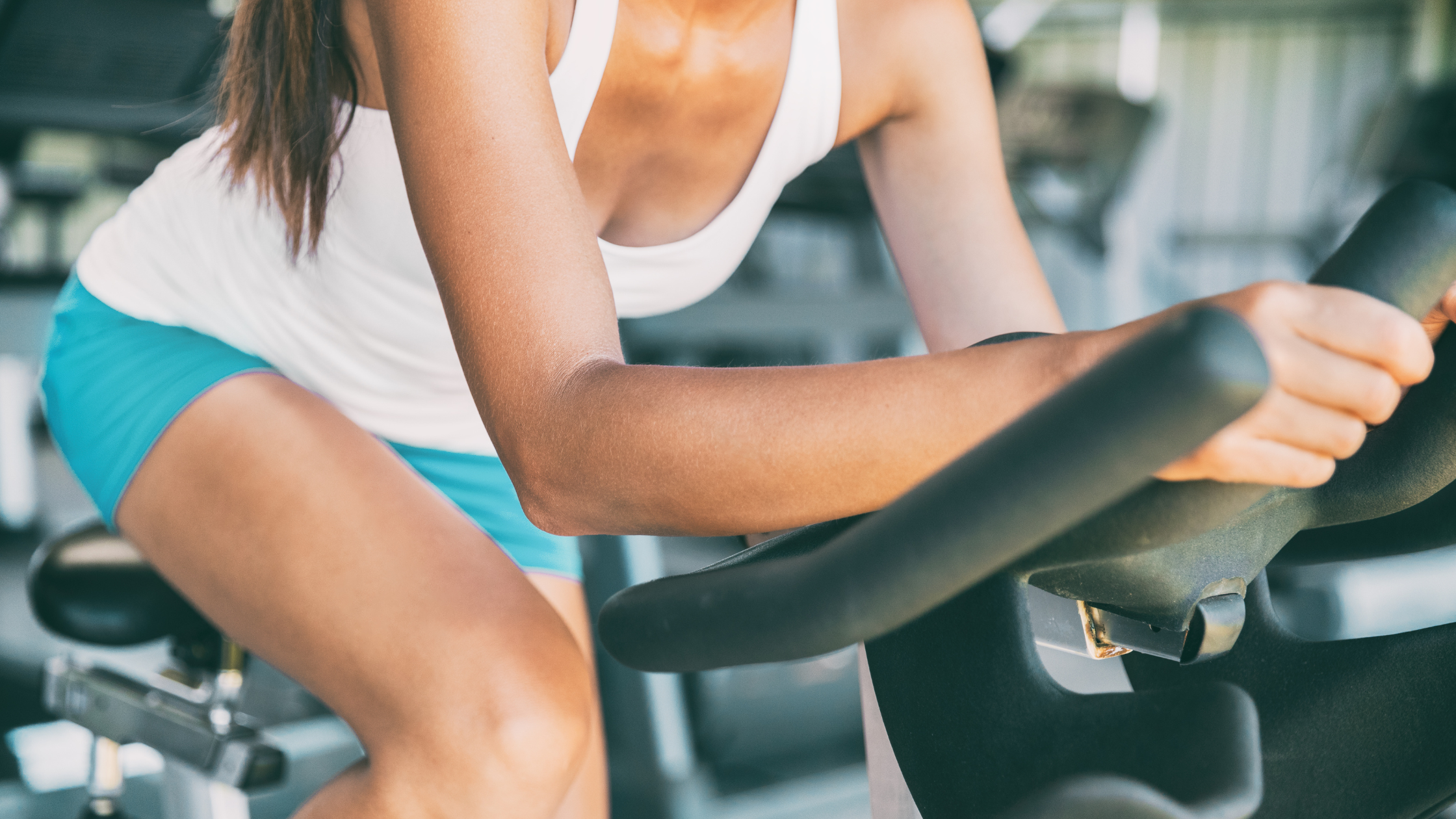
Calorie outputs are estimations based on power, your weight, time, and a few other factors. Calories burned estimates aren’t a perfect science, and while that science might be improving, the estimates of how many calories you burn while exercising can still be wildly off base. It’s best to think of the calories burned number on your Peloton, Apple Watch, or any other piece of tech as a generalization.
Beyond those numbers being a general estimate, it’s important that we recognize that exercise in itself isn’t a weight-loss tool. It’s a health tool. Can working out consistently help you lose weight? Definitely. But the help it provides typically comes from helping us stay motivated to eat well, sleep regularly, and be more mindful of how we treat our bodies. The more quickly you can start exercising for the health and wellness benefits instead of the calorie benefits, the better off you’ll be. And chances are you’ll enjoy your workouts even more because of it.
“I have had a peloton since 2014… I even tried to workout 6-7 days a week with NO weight loss. I kept thinking I’m killing it and I ate pretty healthy too. Until I met stronger U I never had any weight loss. I assumed I was doing enough. Bottom line is there was more fat (avocados and olive oil) and calories in the food that I ate then I wanted to admit.” – Amanda Lamer
You’re still eating poorly even if you think you aren’t.
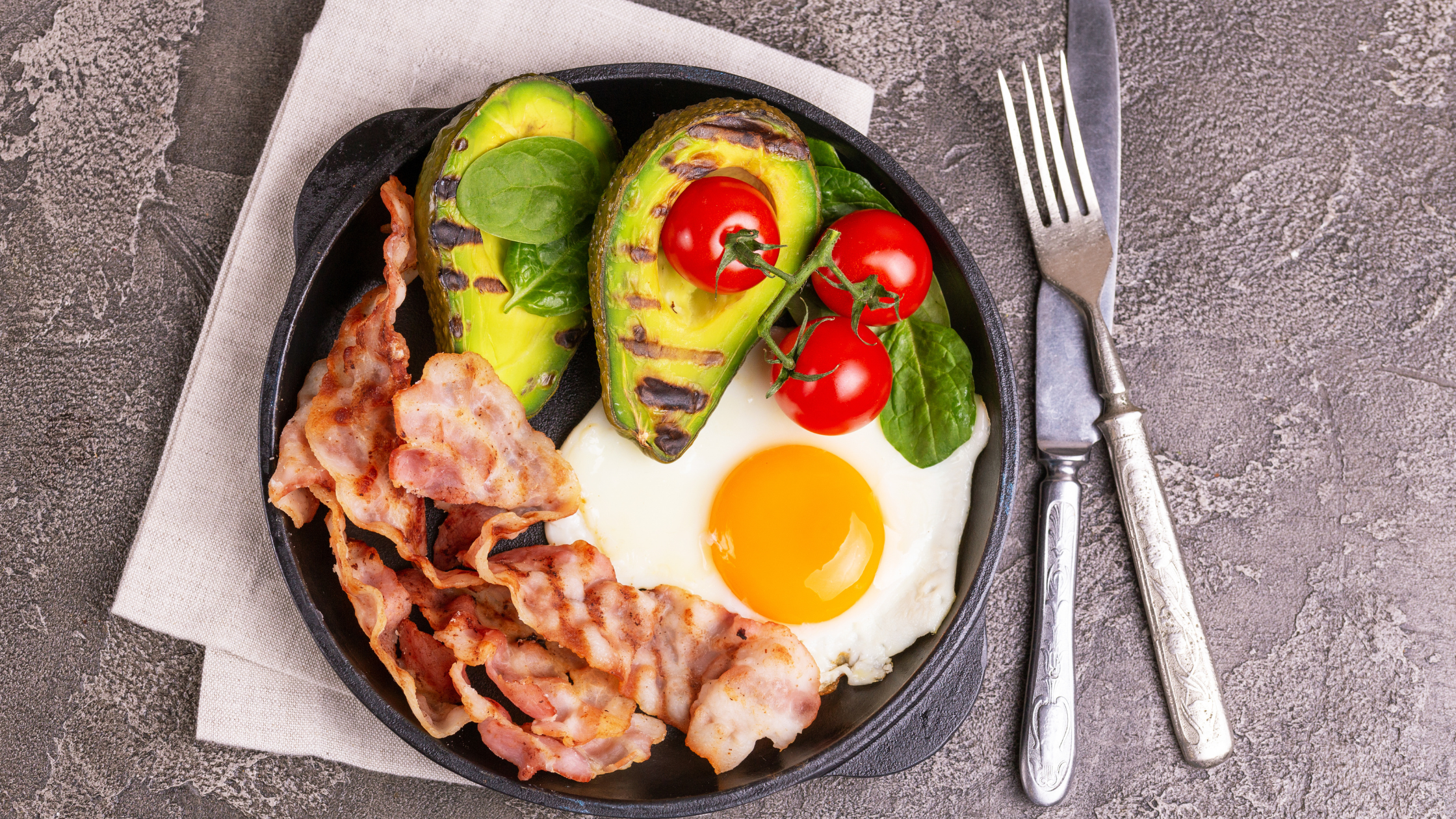
You start riding your Peloton 3x a week and you make that a habit. You’re feeling great because you’re moving your body more often and you’re building an exercise habit you can be proud of. You decide to make some changes in how you’re eating to help yourself along.
So you start eating more “whole foods”. You load up on avocados, buy only organic foods, grass-fed beef, and butter. A few weeks go by and you’re still not down any weight. What gives? Simply put, you might have tried to improve the quality of what you’re eating, but in doing so you might have also increased the quantity of how much you’re eating without even knowing it
“Got my bike December of 2019 and lost 15 lbs. by April. That’s when I started seeing #StrongerU posts all over my Pelo groups. Convinced, I joined. I’m in Week 40 and officially down 57 lbs. Stronger U + Peloton is an unbeatable combination.” – Elizabeth Jennings
Our eating habits are the most important factor when it comes to weight loss. Specifically, how much we eat. Most of us understand that we have to eat less in order to lose weight. But what most of us don’t understand is how difficult it is to eat less or how small the margin for error of weight loss actually is.
Actual weight loss requires a consistent calorie deficit, repeated over a period of time. How long of a period of time that is depends on how intense your calorie deficit is. Creating that calorie deficit requires us to honestly and accurately stay on top of how much we’re eating on a daily basis — something that even the most educated people in the world of food struggle with.
Eating plenty of fruits, vegetables, and exercising is a good recipe for improving your health. But weight loss in itself still comes down to creating a calorie deficit, and unfortunately, it’s more than possible to overeat foods that we view as healthy or okay. Especially foods higher in fat like avocados. Yes, there is more to this food thing than calories but in the case of fat loss, they are king.
You use food as a reward for working out.
Someone goes on a ride, they’re told that ride burned 400 calories, and now they have an additional 400 calories they can eat that day. Because that’s how calorie burning and exercising work, right?
Not quite. It’s easy to think of food as a reward. For many of us, we’ve been taught since we were children that’s exactly what food is: a reward. And that thought follows us into adulthood. The way we approach food after a hard workout is a perfect example of that.
But that’s not how the world of weight loss works. Like we’ve established, creating a calorie deficit usually involves a very small margin of error. For plenty of people, that might only be 100-200 calories. Which means even if you have a great workout, you’re only a heaping serving of peanut butter away from eliminating your calorie deficit for the day, which might undo any weight loss you were going to see that week. It’s also common to under-report the amount you did eat, which means you’re not only negating the deficit, you’re going the wrong way.
“I definitely ate the calories the bike told me I was burning!” – Carrie Costello, down 90lbs with SU and Peloton!
The workouts make you hungrier.
The double-edged sword of working out is the fact that working out, by its very nature, is bound to make you hungrier. Think about it: you’re pushing your body, you’re sweating, and you’re doing that for around an hour or more. Even if that doesn’t burn as many calories as we think, it does have a psychological impact.
As we’ve already seen, the whole hunger/exercise relationship is incredibly complicated, and it feels impossible to separate the two. But one of the things that we have to accept is that working out will inevitably make you hungrier at some point during the day. Maybe it’s because you’re implicitly viewing food as a reward and not even conscious of it, so you desire more food. Or maybe it’s because you’ve been convinced that you need to eat more food in order to recover, so you have this natural desire to eat more on days you exercise.
No matter the reason, if you’re not actively paying attention to how much you’re eating on a daily basis, working out regularly can accidentally lead you to overeating. All without you being aware of what is actually going on.
“I was over eating and hoping to offset that with burned calories. Based on the bikes numbers and guessing (incorrectly) how much I was eating I assumed I was in a “good enough” deficit (I wasn’t). Often, I thought that since I was working out I had more wiggle room so that didn’t help either.” – Katherine Crites
You’re not eating enough protein daily.
Speaking of hunger, because protein is important for satiety, not consuming enough each day can leave you feeling hungry and hence, eating more of other foods. Protein is also essential for muscle growth and maintenance, so not including enough protein in your diet may lead to muscle loss.
Having a daily protein goal based on your individual needs that you aim to hit each day is a great way to ensure you are eating enough.
You worked out hard and moved less the rest of the day.
Have you ever heard of the constrained model of energy expenditure? In short, it says that when you work out hard, your body will naturally throttle down your activity in order to help you rest and prevent you from expending too much energy.
This is an evolutionary adaptation that goes back to the time when our ancestors roamed the plains. And while we now roam grocery stores instead of wide-open plains, our brains and the things that drive our behavior haven’t changed much. That’s especially true when we think about our relationship with exercise and general movement.
It’s a well-established idea that NEAT (non-exercise activity thermogenesis) plays a pivotal role in weight loss. NEAT can be thought of as all the movement you rack up during your day to day life that isn’t exercise. Your daily steps, the fidgeting you do while you’re waiting on a meeting to start, and the work you do to prep your food? All NEAT.
But here’s where things get tricky: when you work out really hard, the constrained model of energy expenditure says that you will then start moving less over the rest of the day, bringing your NEAT down from where it previously was. Not all bad, right? Not so fast.
NEAT accounts for around 30% of your daily energy expenditure. Calories burned during exercise pale in comparison to that number due to the fact that exercise tends to happen for drastically shorter periods of time. After all, if your workout takes you an hour, there are still 23 hours in the day that your body can be moving around and burning calories. It’s virtually impossible for most people to make up that difference through exercise alone, and I can confidently say that it probably wouldn’t be fun to try and do so.
You exercise and try to improve your diet but ignore other lifestyle areas.
Keep riding your Peloton, it’s awesome. Anything that helps you move your body on a consistent basis in a way that you enjoy is an exercise habit that is sure to stick around. And it should be no shock to any of you that we here at Stronger U are big fans of a company that creates a supportive and loving community. It’s important to keep in mind, however, not to treat riding your Peloton as the only thing you need to do to lose weight. If your goal is fat loss, you will have to pay attention to how much you eat and be mindful of other lifestyle areas. Some other ways you can support your goals are by:
- Getting adequate sleep
- Managing your stress levels
- Staying hydrated
- Tracking your food intake, specifically protein
- Being mindful of alcohol consumption
- Getting movement outside of exercise
- Working with a nutrition expert (such as a Stronger U Coach) who can give you a personalized plan
Interested in learning more about Stronger U? Email us at info@strongeru.com or to schedule a free consultation with someone on our Member Experience Team.

